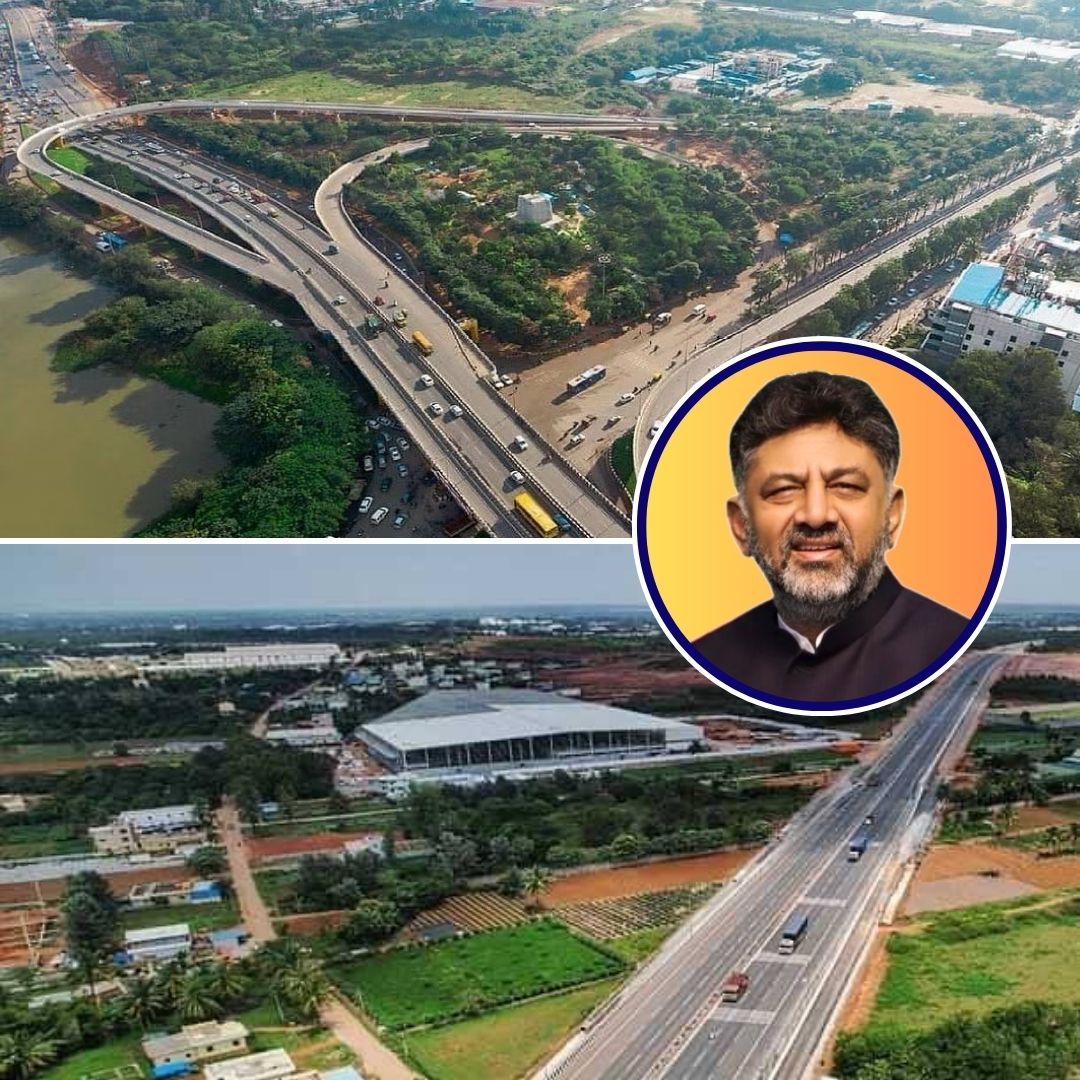The Karnataka government has given the green light to the Bengaluru Business Corridor (BBC), a landmark Rs 27,000 crore, 117-km toll road project aimed at reducing Bengaluru’s infamous traffic congestion by 40%. Stretching from Tumakuru Road in the northwest to Mysuru Road in the south via Yelahanka and Electronics City, the corridor is scheduled for completion within two years.
The Bangalore Development Authority (BDA) will execute the project, funded by a loan from the Housing and Urban Development Corporation (HUDCO). Deputy Chief Minister DK Shivakumar announced multiple compensation options for nearly 1,900 affected landowners, emphasising fairness and inclusion as the government prioritises speedy implementation after previous delays.
Project Design and Officials’ Insights
The Bengaluru Business Corridor, previously known as the Peripheral Ring Road, has been redesigned with a reduced width of 65 metres from an earlier 100 metres. This decision aligns the road with the Bengaluru-Mysuru Expressway’s width and allows the return of around 35 metres of land to farmers for commercial use as part of compensation.
Additionally, a 5-metre stretch within the corridor has been reserved for a future metro line, integrating public transit planning with road infrastructure. Shivakumar described the project as a “historic step” for Bengaluru, designed to serve as a long-awaited alternative to the NICE Road, which has struggled to keep pace with the city’s growth.
He detailed five compensation options for landowners, including cash payments at twice or thrice the guidance rate, Transferable Development Rights (TDR), developed residential plots, or commercial plots adjacent to the corridor, aiming to reduce project costs by as much as Rs 10,000 crore.
Shivakumar underscored the government’s resolve that no land will be denotified and that compensation monies for disputed lands will be securely deposited in courts to prevent acquisition delays.
Namma Bengaluru is on the move towards a new era of connectivity and growth.
— DK Shivakumar (@DKShivakumar) October 17, 2025
The Bengaluru Business Corridor will ease traffic and open new avenues for progress across our city. This project reflects our commitment to building a modern, well-connected, and future-ready… pic.twitter.com/s96zV4IHiy
Background and Urban Context
The BBC is a revival and rebranding of a project conceptualised in 2005 to alleviate Bengaluru’s worsening traffic congestion and support its rapid urban and economic expansion. Bengaluru’s explosive growth has stretched existing transport arteries to breaking point, with commuters frequently facing long delays.
The corridor links key residential, industrial, and technology hubs, such as Yelahanka, Whitefield, and Electronics City, facilitating bypass routes that divert heavy traffic away from the city core. By decongesting major connecting roads, the corridor is expected to unlock large tracts of land for commercial and industrial development, fostering economic growth.
The state government’s strategic funding via HUDCO underscores a commitment to sustainable urban infrastructure development with a timeline set firmly at two years for completion, reflecting urgency and prioritisation.
The Logical Indian’s Perspective
The Bengaluru Business Corridor represents a rare alignment of infrastructural ambition with empathetic urban planning, addressing longstanding traffic woes while recognising the lives and livelihoods of landowners affected by the project.
By offering varied compensation options and integrating future mass transit plans, the government demonstrates a commendable commitment to inclusive progress. This project highlights the importance of transparent governance and community engagement in urban development, striving to balance economic growth with social equity.
However, as the corridor progresses, vigilant oversight by citizens and authorities alike will be crucial to ensure promised benefits materialise fairly, without marginalising vulnerable communities.













